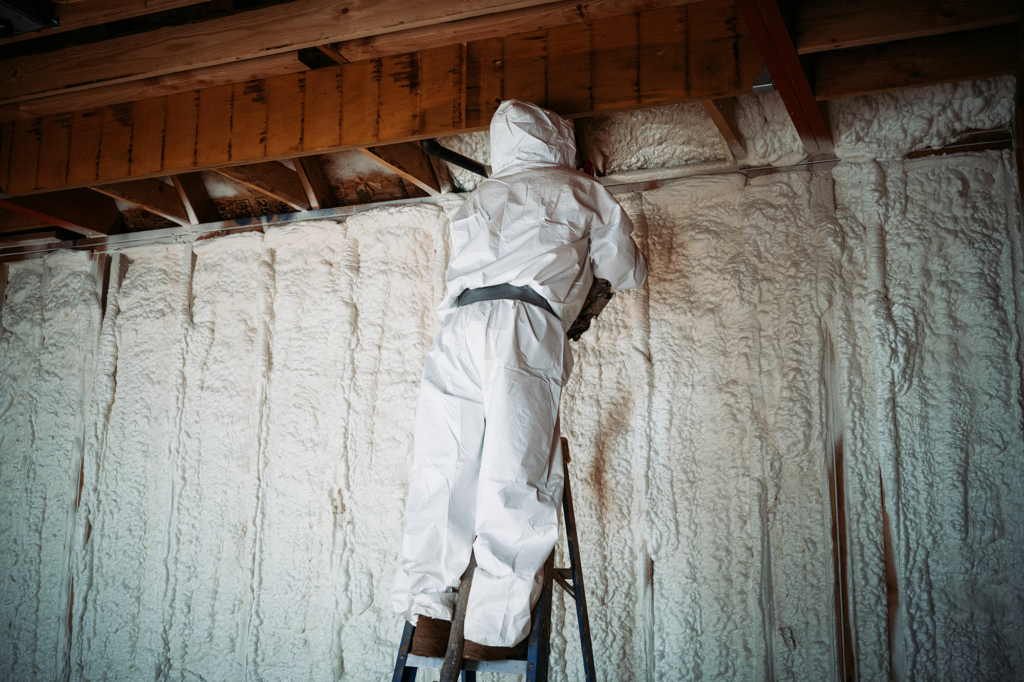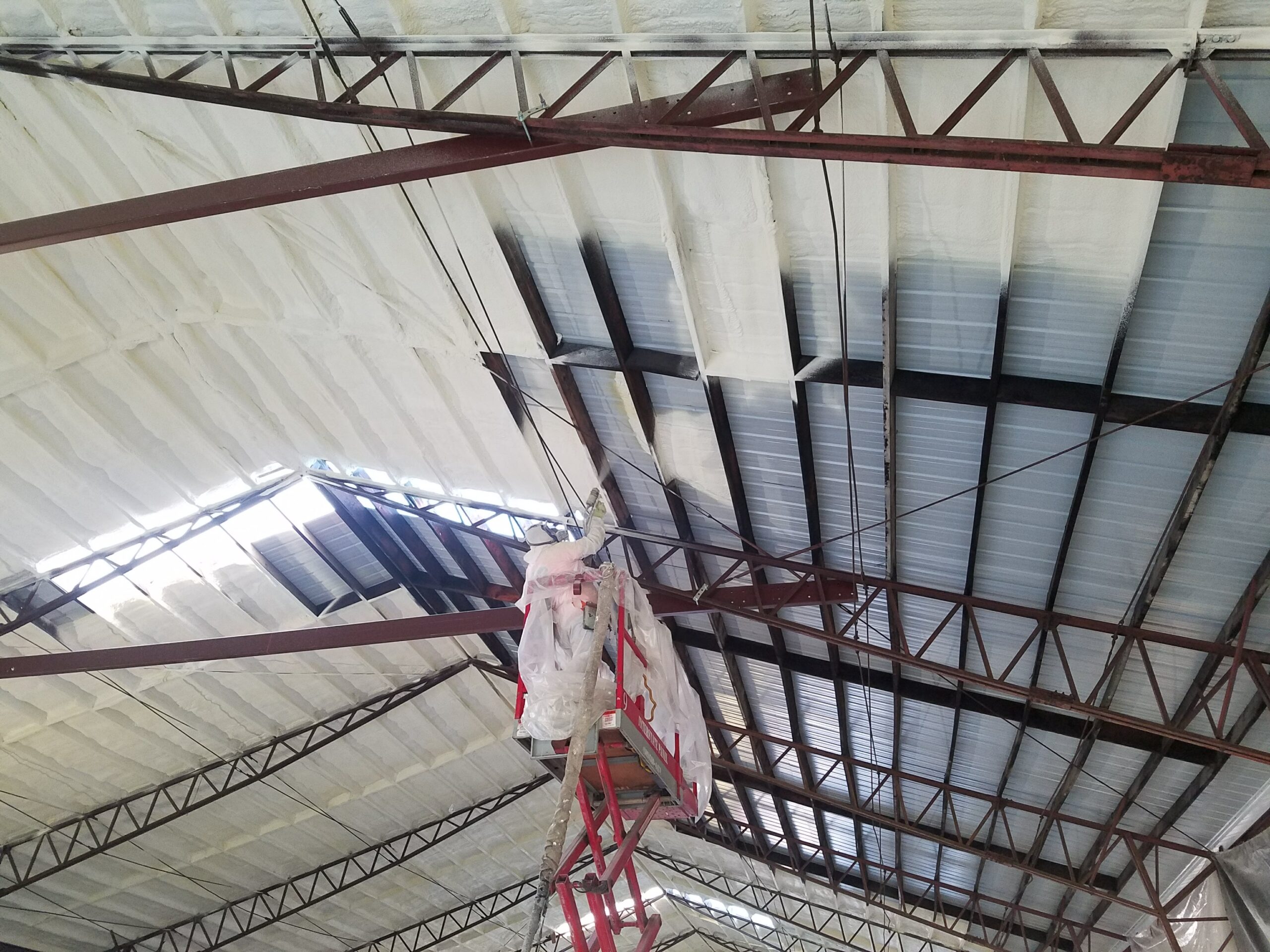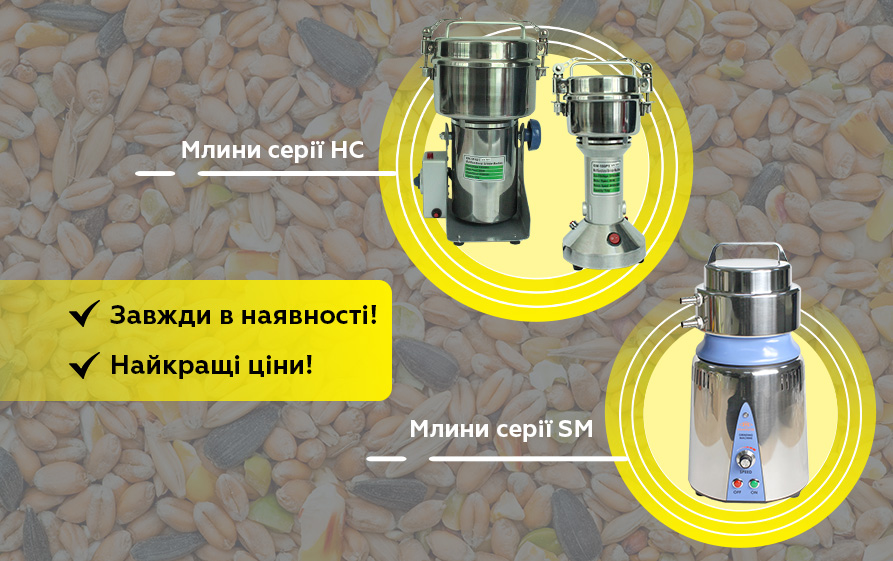Spray Foam Insulation Services in Raleigh: What Homeowners Should Know
Raleigh homeowners should understand that spray foam insulation services encompass two primary application types with distinct performance characteristics: closed-cell foam offering superior moisture resistance and structural support, and open-cell foam providing effective thermal insulation with sound dampening properties. Professional foam insulation requires specialized equipment, certified technicians, and precise application techniques to achieve optimal performance in North Carolina’s humid subtropical climate conditions.
Quality foam insulation selection depends on understanding application areas, performance requirements, and local climate factors that affect long-term durability and effectiveness. This comprehensive guide examines essential knowledge areas for homeowners considering spray foam installations in the Triangle region.
Types of Spray Foam Applications Available
Local spray foam specialists offer distinct material types designed for specific applications and performance requirements. Closed-cell spray foam provides high R-value per inch, exceptional moisture resistance, and structural reinforcement capabilities ideal for crawl spaces, rim joists, and exterior wall applications in humid climates.
Open-cell spray foam delivers effective thermal insulation with superior sound absorption properties suitable for interior wall cavities and conditioned attic spaces. This material type allows moisture vapor transmission while providing excellent air sealing characteristics that reduce energy loss through air infiltration.
| Foam Type | R-Value per Inch | Density (lbs/ft³) | Primary Applications | Moisture Resistance |
| Closed-Cell | 6.0-7.0 | 2.0-2.5 | Crawl spaces, rim joists, exterior walls | Excellent |
| Open-Cell | 3.5-4.0 | 0.4-0.6 | Interior walls, conditioned attics | Moderate |
Bonus Tip: Choose closed-cell applications for areas with potential moisture exposure and open-cell for interior spaces requiring sound control and thermal performance.
Installation Process and Quality Standards
Professional installation involves systematic preparation, precise application techniques, and quality verification procedures that ensure optimal performance. Energy-efficient spray foam installation begins with thorough surface preparation including cleaning, masking, and temperature conditioning to create ideal application conditions.
Application procedures require maintaining specific material temperatures, mixing ratios, and spray patterns to achieve uniform coverage and proper foam expansion. Certified technicians monitor these parameters continuously during installation to prevent application defects that compromise performance.
Quality control measures include thickness verification, coverage inspection, and post-installation testing to confirm proper installation standards. Professional teams document these quality checkpoints to ensure compliance with manufacturer specifications and local building codes.
Advanced insulation methods incorporate integrated air sealing techniques that address thermal bridging and air leakage simultaneously. This comprehensive approach maximizes energy efficiency gains and provides superior comfort improvements compared to traditional insulation materials.
Climate Considerations for Triangle Area Homes
Raleigh’s humid subtropical climate presents specific challenges for insulation performance that influence material selection and installation strategies. Summer humidity levels frequently exceed 70%, creating conditions where improper installation can trap moisture and promote mold growth in building assemblies.
Professional teams understand how seasonal temperature fluctuations affect spray foam performance and durability. They recognize that closed-cell applications provide integrated moisture management essential for crawl spaces and other areas prone to humidity problems in North Carolina homes.
Eco-friendly insulation approaches consider ventilation requirements and indoor air quality impacts of different foam applications. Proper installation preserves necessary airflow while maximizing thermal performance and moisture control in humid climate conditions.
Bonus Tip: Schedule installations during optimal weather conditions when temperature and humidity levels support proper foam curing and performance.
Performance Benefits and Limitations
Quality foam insulation delivers measurable improvements in energy efficiency, indoor comfort, and structural performance when properly installed. Air sealing capabilities reduce energy loss through infiltration by 15-30%, while thermal resistance improvements decrease heating and cooling loads significantly.
Structural benefits include enhanced building envelope integrity through improved racking strength and moisture protection in critical areas. Closed-cell applications provide additional structural support that can improve overall building performance in high-wind events.
| Performance Aspect | Closed-Cell Benefits | Open-Cell Benefits | Limitations |
| Air Sealing | Excellent | Good | Requires proper installation |
| Moisture Control | Superior | Limited | Open-cell allows vapor transmission |
| Sound Dampening | Moderate | Excellent | Thickness affects performance |
| Structural Support | High | None | Limited to closed-cell only |
Installation limitations include accessibility requirements for proper application and potential compatibility issues with existing building systems. Some electrical and plumbing configurations may require modifications to accommodate foam installation effectively.
Technical Specifications and Standards
Professional spray foam installations adhere to specific technical requirements that ensure optimal performance and code compliance. These standards govern material properties, application techniques, and verification procedures essential for successful installations.
| Specification Category | Closed-Cell Requirements | Open-Cell Requirements | Testing Standard |
| Minimum R-Value | 6.0 per inch | 3.5 per inch | ASTM C518 |
| Density Range | 2.0-2.5 lbs/ft³ | 0.4-0.6 lbs/ft³ | ASTM D1622 |
| Fire Rating | Class A materials | Class A materials | ASTM E84 |
| Vapor Permeability | <1.0 perms | >5.0 perms | ASTM E96 |
These specifications provide measurable benchmarks for evaluating installation quality and performance expectations. Reliable spray foam services maintain documentation demonstrating compliance with these technical standards throughout the installation process.

Things to Consider Before Making a Decision
Several pre-decision factors influence spray foam service selection and project success. Evaluate your home’s specific moisture conditions, ventilation systems, and existing insulation performance to determine optimal foam applications and installation strategies.
Consider project timing requirements and weather dependencies that affect installation scheduling. Quality applications require specific temperature and humidity conditions for proper curing, which may limit installation windows during certain seasons.
Home spray foam insulation decisions should account for long-term performance expectations and maintenance requirements. Different foam types offer varying lifespans and durability characteristics that affect overall value and effectiveness over time.
Existing building systems including HVAC equipment, electrical wiring, and plumbing may require modifications to accommodate foam installation. Discuss these possibilities during initial consultations to avoid project delays or unexpected complications.
Common Questions About Spray Foam Services
How do I determine which foam type is appropriate for my specific application? Professional assessment considers moisture exposure, structural requirements, sound control needs, and climate factors to recommend optimal foam types for different areas of your home.
What preparation is required before spray foam installation begins? Clear access to installation areas, remove stored items, and ensure adequate workspace. Professional teams coordinate specific preparation requirements during project planning phases.
How long does spray foam installation typically take to complete? Installation duration depends on project scope and material type. Small applications may complete in one day, while comprehensive whole-house projects typically require 2-3 days including preparation and curing time.
What warranty coverage should I expect from professional installations? Quality services provide material warranties from manufacturers plus installation workmanship guarantees. Foam installations should include minimum 5-year workmanship warranties with longer material coverage periods.
Frequently Asked Questions
Q: Can spray foam installation affect indoor air quality? A: Properly installed and cured spray foam does not negatively impact indoor air quality. Professional installation includes adequate ventilation during application and proper curing time before occupancy.
Q: How does spray foam performance compare to traditional insulation materials? A: Spray foam provides superior air sealing, moisture control, and thermal performance compared to fiberglass or cellulose. The integrated approach addresses multiple building envelope issues simultaneously.
Q: What maintenance requirements apply to spray foam insulation? A: Properly installed spray foam requires minimal maintenance. Periodic inspection for damage or settling may be necessary, but typical residential applications maintain performance for 20-30 years.
Q: Are there any areas where spray foam should not be applied? A: Avoid foam applications near high-temperature sources, in areas requiring frequent access, or where building codes restrict foam usage. Professional assessment identifies appropriate and inappropriate application areas.
Q: How do I verify the quality of a completed spray foam installation? A: Quality installations demonstrate uniform coverage, proper thickness, complete curing, and documented compliance with specifications. Professional teams provide verification testing and documentation upon completion.
Professional Installation Excellence
Home spray foam insulation success depends on professional expertise, quality materials, and proper application techniques that address Triangle area climate challenges. Foam insulation experts combine technical knowledge with specialized equipment to deliver installations that provide lasting energy efficiency and comfort improvements.
Understanding these fundamental aspects empowers homeowners to make informed decisions about spray foam applications and service provider selection. Quality installations require experienced professionals who understand local conditions and maintain rigorous installation standards.
Ready to Achieve Superior Energy Efficiency
Spray foam insulation services offer transformative energy performance improvements when professionally installed using appropriate materials and techniques. Understanding application types, performance characteristics, and quality standards enables successful project planning and optimal results.
Apply this knowledge now: Schedule your comprehensive spray foam consultation with Raleigh Excel Spray Foam Insulation to receive expert guidance on material selection and installation strategies tailored to your home’s specific requirements.
Contact Information: Raleigh Excel Spray Foam Insulation
Phone: (919) 301-9435
Email: info@raleighexcelsprayfoam.com

Reviewer: With nearly a decade in the spray foam insulation field, William Harris reviewed this post and provided guidance that reflects both technical understanding and real-world marketing experience.













